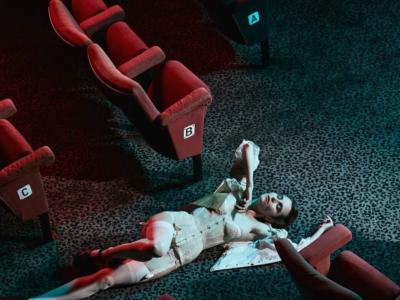Roberto, it seems, was always destined to direct sound. The floorboards and window panes of his family home were built strong; forced to endure the tremors and vibrations of a makeshift concert hall.
“We Lived in a small apartment, but it was very musical” he told me. “My father was a drummer, my mother was a singer.”
Was that typical?
“There are a lot of musical families in Cuba, but not so much diversity as in my house. There was jazz, classical, soul, funk, hip-hop.”
That musical playground produced three boys who found instruments wherever they looked. Chopping the veg was a chance to sing. Washing the dishes was percussion time.
You would feel sorry for the neighbours, but given their talents, maybe they'd struck lucky.
What is it about Cuba? I asked him. Why does that place produce so many musicians?
“Cuba is like a music factory” he said, with a flicker of laughter. “Maybe it’s the weather, but Carribean people are really spiritual people.”
That depth of Carribean feeling, married with a diverse chaos of influences begins to explain the enigma that is Yesun, his new album.
The work, inspired by the spirits of West African tradition, ebbs and flows in a pattern of sound.
Sharp piano notes pierce through smooth harmonies like jagged ice, countered by the flare of vivid percussion, keeping the pulse alive.
Nothing epitomises that marriage of contrasts better than the gripping track “Aggua."
“Aggua is a really important song. I wanted to share my classical influence and also show there is no boundaries, and everything flows like water.”
That idea of fluidity provided the philosophical foundation for the record.
“Yesun is the title of the album. It is a word I invented. Yemoja is the God of the sea, and Oshun is the God of the river in the Yoruba religion.”
Just like the river, everything is flow to Fonseca. Nothing should be divided, categorised or boxed away.
“People think all Cubans smoke cigars, drink rum, and dance" he told me.
"But, I’m just a crazy romantic musician who plays piano."
It is that refusal to be categorised, to be limited, that gives Fonseca such refreshing originality.
As I felt our interview coming to a close, I wouldn't let Roberto go without asking one final question.
Having studied Yesun back to front, I still couldn't make sense of the name of the second track - Kachucha.
“So, what does it mean?” I asked.
“It’s like candela or agua. It means really good...but you have to be careful, because it can also mean something really bad!”
The meaning, like the music, is fluid.
In Roberto Fonseca's world, nothing should be too rigidly defined.
Rhythm and flow is the mantra - rhythm and flow.
Roberto Fonseca will be performing at Hackney's EartH on Sunday December 1st. Tickets here: https://soundcrashmusic.com/44245-2jzzwrl/















